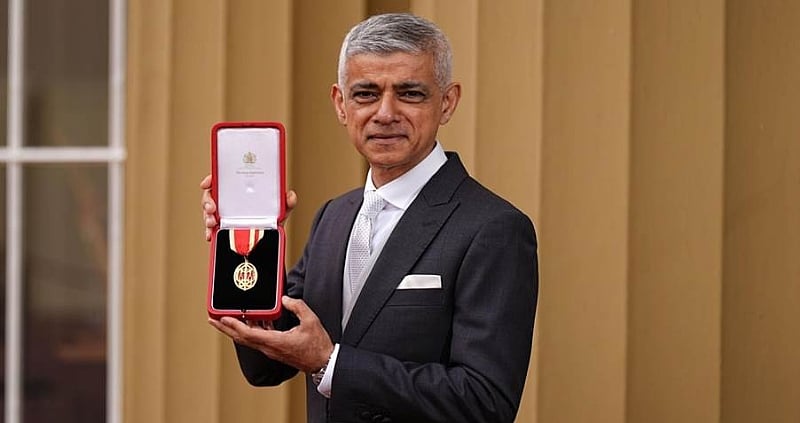In late June 2025, London Mayor Sir Sadiq Khan announced that he would lead the first ever trade delegation by a London Mayor to Nigeria, Ghana and South Africa, three of Africa’s fastest-growing economies. The announcement, made at a London Assembly meeting, described the mission as an opportunity “to bang the drum” for further investment in London and to strengthen the cultural ties London has with each of the three countries. The 5‑day tour of Lagos, Accra, Johannesburg and Cape Town aims to bring together London-based businesses, start‑ups, cultural leaders and Diaspora organisations to explore joint opportunities. Khan’s role as co-chair of C40 cities, a global cities network focused on climate action, links the trip with sustainable economic development. His previous global visits as chair and climate envoy had landed him in places like India, Pakistan, the US, Canada and South America, setting a precedent for soft power driven diplomacy.
London’s Mayor, Sir Sadiq Khan, has long been known for his bold initiatives and inclusive vision of what a truly global city should look like. This recent announcement to embark on his first mayoral trade mission to Africa, specifically Nigeria, Ghana, and South Africa, signals a new chapter not just for London, but for Africa’s relationship with one of the world’s leading global capitals. While mayoral trade missions are not new in themselves, this is the first time a London mayor has chosen to focus on Africa in such an official capacity, and it is a move that is filled with both symbolism and real potential.
Sir Sadiq Khan has already said that the trip is aimed at “banging the drum for London” while deepening economic, cultural, and social ties with African countries. His itinerary will include major economic hubs like Lagos, Accra, Johannesburg, and Cape Town. In each city, Khan will meet with government officials, business leaders, investors, and representatives of the local creative and tech industries. He will also engage directly with communities and visit cultural sites, underlining London’s long-standing connections with African Diaspora communities.
Africa, as a continent, stands to gain significantly from this high-profile visit. First, there is the symbolic value of being acknowledged by one of the most powerful city leaders in the Western world. For decades, Africa has often been discussed from a developmental aid perspective rather than as an equal partner in global economic and cultural conversations. Khan’s visit challenges this narrative by highlighting Africa’s growing economic might and its central role in global markets of the future. Nigeria, for example, is Africa’s most populous country and boasts of the largest economy on the continent. Ghana is often cited as one of the most politically stable and rapidly developing economies in West Africa. South Africa remains the continent’s most industrialized economy and a crucial gateway to wider Southern African markets.
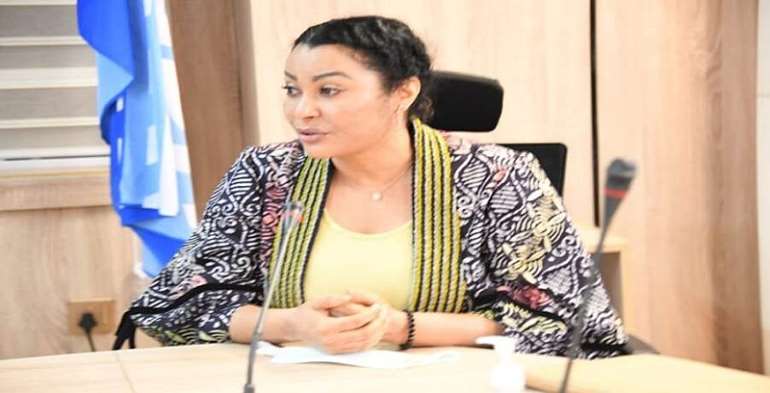
Nigeria’s trade minister Dr. Doris Uzoka-Anite
On the economic front, Khan’s visit opens the door for African entrepreneurs, start-ups, and small businesses to build networks with London-based investors and partners. London, as one of the world’s foremost financial centres, offers expertise in project financing, Fintech, green bonds, and infrastructure development. African cities facing enormous infrastructure and urban planning challenges can benefit directly from London’s extensive experience in these areas. The potential for joint ventures and co-financing arrangements is enormous. African governments and businesses have been seeking to diversify their partnerships away from traditional donors and investors, often looking East towards China and India. Khan’s approach suggests that London, and by extension the UK, is eager to offer a Western alternative that is perhaps more attuned to issues of sustainability and inclusivity.
Furthermore, Khan’s visit is likely to stimulate discussions about green growth and climate resilience. As co-chair of the C40 Cities Climate Leadership Group, Khan has made climate action a central pillar of his administration. African cities, many of which are highly vulnerable to climate change, could benefit from knowledge exchange and technical partnerships with London’s experts in sustainable urban planning, renewable energy, and green public transportation. Such collaborations could help African cities leapfrog outdated infrastructure models and adopt more sustainable and resilient approaches to urban development.
The cultural dimension of Khan’s visit is equally important. Africa has a rich and diverse cultural landscape, and London is home to one of the largest African Diaspora communities in the world. The mayor’s visit will definitely highlight the importance of these cultural connections, providing opportunities for deeper artistic collaborations, educational exchanges, and tourism promotion. It will also send a powerful message to Londoners of African descent that their heritage and connections to the continent are valued at the highest levels of civic leadership. In cities like Lagos and Accra, where music, fashion, and other creative industries are thriving, new collaborations could emerge that will help take African creativity to global audiences, facilitated by London’s platforms.
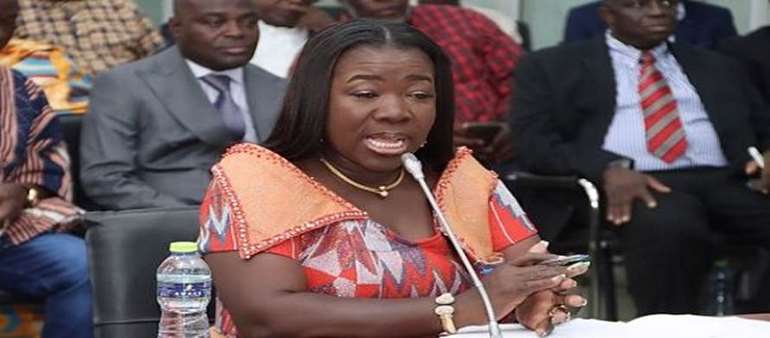
Ghanaian trade minister Elizabeth Ofosu-Adjare
At the same time, London stands to gain in tangible ways. Post-Brexit Britain has been actively seeking to build new economic alliances, and Africa represents a largely untapped market with tremendous growth potential. By positioning London as Africa’s financial and creative gateway to Europe, Khan is laying the groundwork for new trade relationships that can generate jobs and investment back home. The UK’s trade with Nigeria alone is already valued at over £3 billion annually and is expected to grow rapidly. Expanding business with Ghana and South Africa further diversifies London’s economic ties, making the city more resilient in a turbulent global economy.
Moreover, the visit is a strategic exercise in soft power. By fostering goodwill and showcasing London as an inclusive and globally connected city, Khan is reinforcing London’s brand as a welcoming place for international talent, investment, and tourism. With African economies projected to be among the fastest-growing in the coming decades, these ties are not just goodwill gestures, they are long-term investments in relationships that will shape the future global order. The mayor’s approach moves beyond traditional diplomatic channels, focusing instead on city-to-city collaborations that are often more nimble and less burdened by national politics.
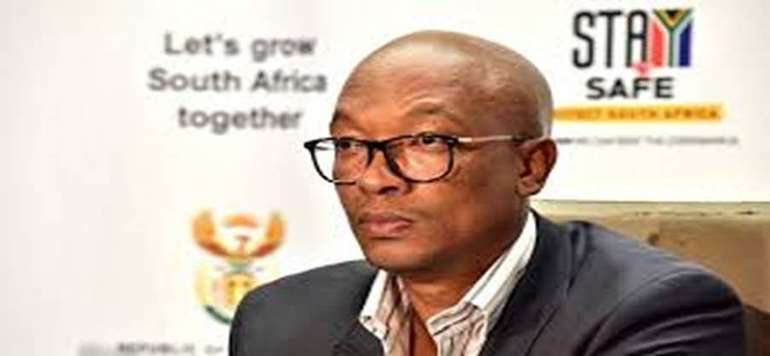
South African trade minister, Parks Tau
Khan’s visit also seeks to strengthen the role of the African Diaspora in London’s economic and social context. Diaspora communities are powerful bridges between their countries of origin and their adopted homes. By actively involving them in trade missions and encouraging investments back into Africa, Khan is unlocking new avenues for economic development both in London and across Africa. Initiatives such as Diaspora bonds, Diaspora-led venture capital funds, and dual city entrepreneur programmes could all find fertile ground as a result of this mission.
Education and talent mobility are other areas that are ripe for growth. London remains a top destination for African students, and strengthening educational ties could mean more scholarships, exchange programmes, and research partnerships. This does not only benefit individual students but also builds long-term institutional connections that foster innovation and shared problem-solving between London and African cities. Likewise, professional exchanges and training programmes can help transfer critical skills in such sectors as healthcare, engineering, and tech, contributing to capacity building on the continent while enhancing London’s talent pool.
While critics might argue that a mayoral trade mission, however well-intentioned, cannot substitute for national-level trade agreements or aid programmes, the fact remains that city diplomacy is being increasingly recognized as a powerful tool in global governance. Mayors often have more direct, practical influence on issues like infrastructure, public health, and local economies using city diplomacy. Khan’s track record with climate initiatives and urban transformation suggests he is well-placed to make meaningful contributions in Africa, where rapid urbanization presents both immense challenges and opportunities.
In practical terms, Khan’s visit could pave the way for specific agreements on joint infrastructure projects, investment commitments in tech hubs, and cultural festivals that span both regions. African cities could receive technical support to develop green public transportation systems inspired by London’s own initiatives, such as the Ultra Low Emission Zone (ULEZ) and extensive cycling networks. Conversely, London could learn from African cities’ entrepreneurial approaches to informal markets, mobile payment systems, and grassroots community organization, areas where Africa has often been ahead of the curve.
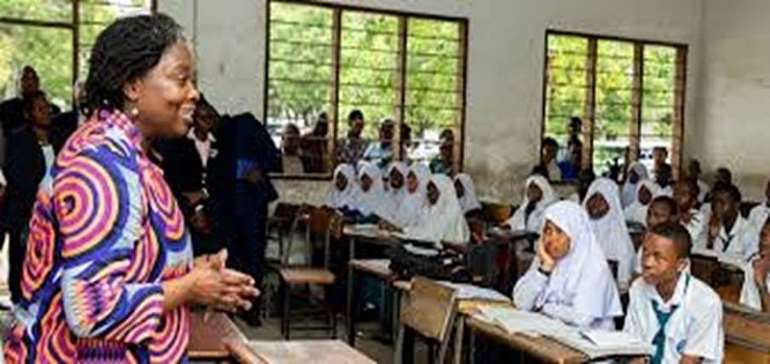
Education in Africa
For Africa, the message is clear: London sees African cities and economies as partners, not merely as aid recipients any more. This shift in perception is perhaps the most powerful outcome of the visit. It creates a foundation for equitable partnerships based on shared growth, mutual respect, and a common future. For too long, Africa has been on the receiving end of narratives shaped by foreign aid dependency and instability. Khan’s visit offers a different narrative, one of agency, empowerment, and shared prosperity.
London, on its part, expects that strengthening these ties will open up new markets for its businesses, attract foreign investment into the city, and enhance its global influence. In a post-pandemic and post-Brexit world, cities like London must redefine their international relationships to remain competitive and relevant. Tapping into Africa’s dynamism and youthful population is a strategic move that aligns with London’s goals of being a global hub for finance, innovation, and culture.
There is also a political dimension to consider. Engaging with Africa allows Khan to demonstrate progressive leadership and global engagement, strengthening his political standing both at home and abroad. For the large African and Caribbean communities in London, this is a tangible recognition of their importance and influence. Symbolically, it positions London as a city that celebrates diversity not just in words but in action.
While the outcomes of such visits are not always immediate or easily measurable, the seeds they plant can have profound long-term effects. Relationships established during these missions often lead to future collaborations, joint ventures, and policy alignments that can transform cities and improve lives. Khan’s focus on sustainability, inclusivity, and mutual economic benefit aligns with the aspirations of many African leaders and entrepreneurs who are eager to redefine their countries’ global roles.
In essence, this visit represents an evolving model of international engagement, one that emphasizes city-led diplomacy, peer-to-peer partnerships, and shared solutions to global challenges. It reflects a recognition that the future of global development and innovation will not be driven solely by national governments but increasingly by cities and local actors working together across borders.
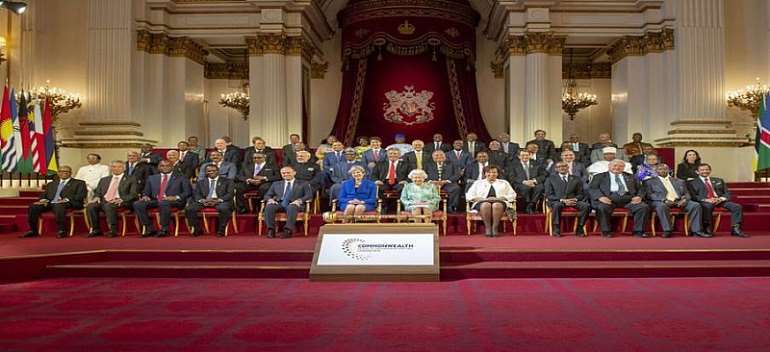
Commonwealth leaders’ meeting in London
As Khan’s plane touches down in Lagos, Accra, and Johannesburg, he will be stepping onto a continent brimming with potential and ready to redefine its place in the world. The mayor’s visit is more than a business pitch or a diplomatic courtesy. It is an invitation to co-create a future where London and Africa are equal partners in shaping a sustainable, inclusive, and prosperous global community.
Through this mission, both sides stand to gain in ways that go far beyond trade balances and investment figures. It is an opportunity to build bridges that connect people, ideas, and cultures; to learn from each other’s successes and failures; and to chart a course towards a shared future defined by cooperation rather than competition. Whether it is through climate action, technology exchange, cultural festivals, or educational partnerships, the possibilities are as vast as they are inspiring.
The significance of Khan’s visit to Africa cannot be overstated. It offers a new blueprint for how global cities can engage with emerging economies, emphasizing respect, reciprocity, and shared destiny. For Africa, it is a recognition of its rising importance on the world stage. For London, it is a step towards securing its future as a truly global, inclusive, and resilient city. And for the world, it is a reminder that the most meaningful progress often starts not with grand summits or sweeping treaties but with human connections and the willingness to build together. In this sense, Khan’s journey to Africa is not just a diplomatic mission, it is a statement of intent about the kind of future both London and Africa are ready to shape together.


